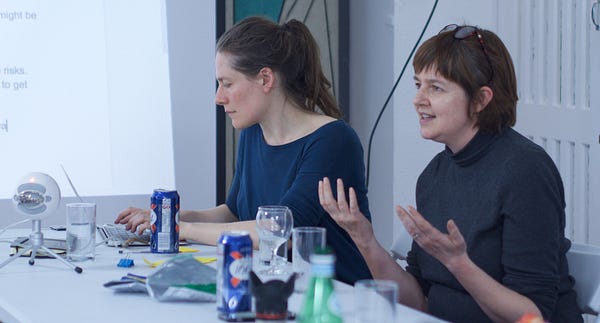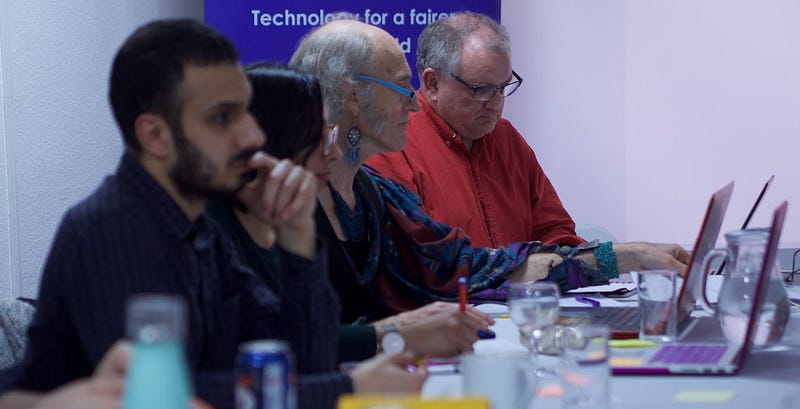https://medium.com/read-write-participate/social-media-decentralized-311b5c0c4f6f
Social Media, Decentralized
A spotlight on the Commons Platform, a 2018 Global Sprint participant
It’s been a rough several months for the world’s dominant social media platforms. The recent Facebook-Cambridge Analytica scandal was followed by a bruising congressional testimony for Mark Zuckerberg. And Twitter’s Jack Dorsey admitted earlier this year that abuse and harassment are overwhelming the platform.
As a result, users, policymakers and activists are abuzz about potential solutions. And while many talk of regulation, Sophie Varlow and Nick Wood suggest a different approach: introducing a new product from scratch, with radically different principles.
“You can’t change things by pushing against them,” Varlow says. “You need to build a new model.”

Varlow and Wood are the UK-based community organizers behind the Commons Platform, a nascent social media platform with core values like privacy and decentralization. The Commons Platform is participating in Mozilla’s Global Sprint, an annual, distributed hackathon taking place May 10 and 11. They’ll be working from the Redmond Community Centre in London.
Varlow and Wood began thinking about the Commons Platform long before Facebook and Twitter’s latest episodes. The idea came not from specific incidents, but larger, systemic problems with today’s social media ecosystem. Like “the impacts of not having consent within tech,” Varlow explains. “Or not owning our own data. These relate to structural inequalities within society.”
“We’ve been talking about these things for years,” Varlow adds.
So how is the Commons Platform different than the status quo? “One of the central differences is that everyone would own their own data,” Wood explains. Further, the platform itself would be owned by its members. Varlow likens it to public land: “No part of it can ever be owned by any individual or group in perpetuity.”

She adds: “Because it is not driven by the attention economy, advertising, and data revenue, people are not encouraged to spend time scrolling. They can curate their content to find the things that are interesting to them and connect to people, issues, and organisations that they care about quickly.”
Privacy features will be baked in from the start. And the Commons Platform is meant for communities, not just individuals. Groups will visit to organize, openly share software, and collaborate on solutions, the duo says. Developers won’t need permission to add or edit software. “We’re putting power back in the hands of communities, so they can create solutions that make their lives better,” Varlow notes.
Currently, Varlow, Wood and collaborators are finalizing the project’s values, aims, culture and ways of working. During the Global Sprint, they’re planning to work with like-minded designers and developers to take the next step forward: “The website, the technical infrastructure, the community standards,” Varlow explains.
But the Commons Platform welcomes more than just technical volunteers — any potential user or community is welcome to share feedback and ideas and co-create the platform. “We try to break down barriers between experts and nonexperts, users and developers,” Varlow says. “After all, we want to build a more equal society.”
Learn more about the Commons Platform. Learn more about the Global Sprint

